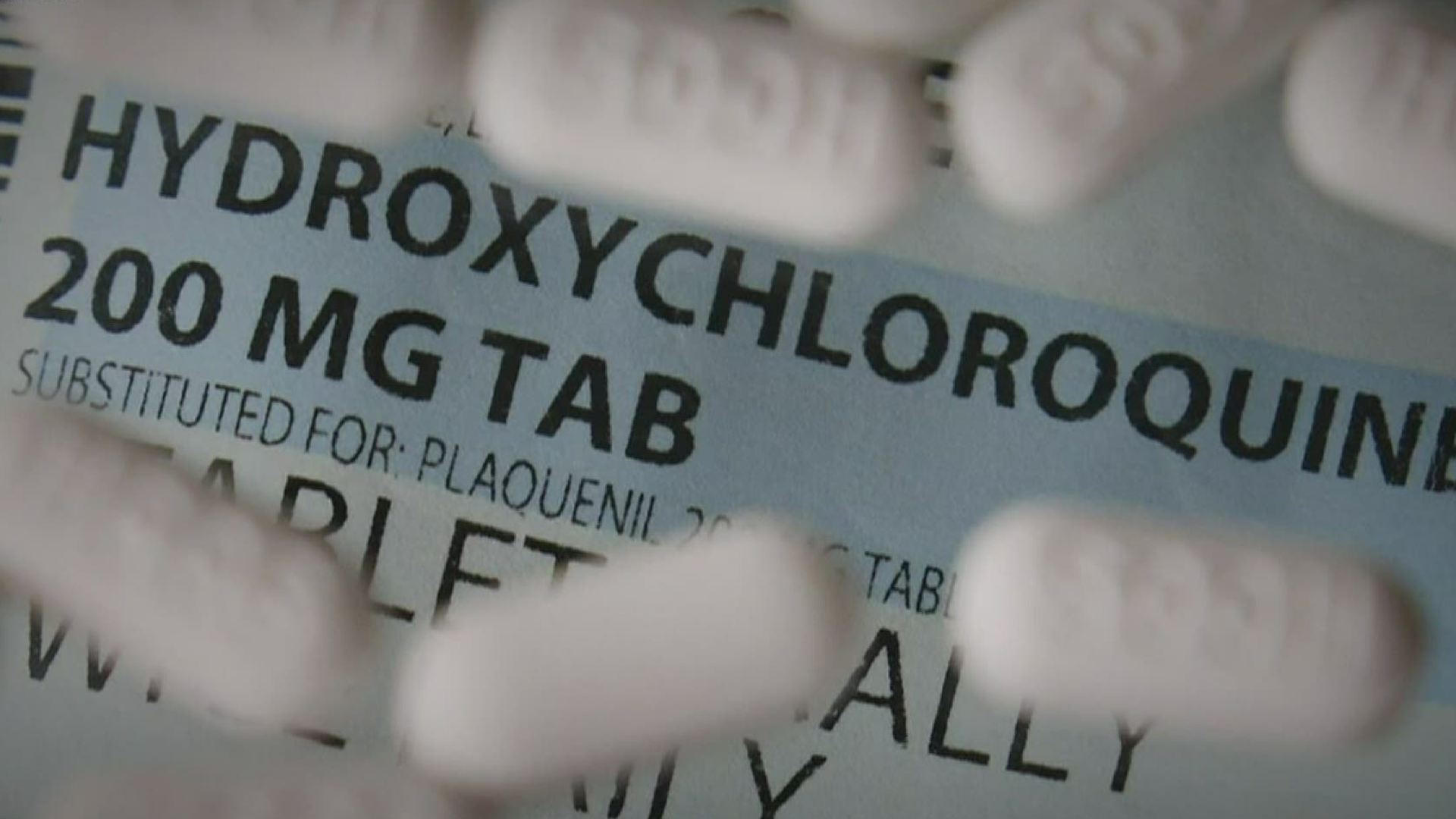MINNEAPOLIS — President Trump has been promoting the anti-malaria drug hydroxychloroquine for several weeks now, but many were still surprised to hear Monday that the president is currently taking the drug, and has been doing so for a week and a half.
Here's a little background. On May 8, Vice President Mike Pence's press secretary Katie Miller tested positive for COVID-19. The next day, White House physician Dr. Sean Conley reached out to experts across the country, including U of M Professor of Medicine Dr. David Boulware.
"I provided him kind of my expert opinion. And provided him side effects we saw in our trial," Boulware said.
Dr. Boulware is overseeing a clinical trial at the U to determine whether hydroxychloroquine is effective in preventing the coronavirus. They currently have about 1500 front line medical workers and first responders nationwide taking part. The participants take a safe dose once or twice a week, and researchers are checking whether those people contract COVID-19.
The U will be the first to publish results of such a study, Boulware said. They expect to see preliminary data in about a month. But he adds they still want to get about 3000 participants and will finish the study sooner with more participants.
Previous analyses found giving hydroxychloroquine to sick hospitalized patients had little effect. But President Trump is apparently taking the drug as a preventative measure.
"The question comes up, is there any evidence that this works? This is something that's really unknown. There's reasons why it might work, but there's reasons why it might not work as well," Boulware said.
Boulware says lab experiments have found the drug can prevent the coronavirus from infecting cells. But they need to find out if the same is true for people who take the pill.
"Whether what works in a Petri dish, does that actually translate to humans? It is really unknown. But that's what we're looking for," Boulware said.
In April, the FDA warned against use of hydroxychloroquine or chloroquine for COVID-19 outside of the hospital setting or a clinical trial due to risk of heart rhythm problems.
Boulware said they do not select anyone for hydroxychloroquine clinical studies who have pre-existing heart issues. And he said of the 2800 participants in three separate trials, none has experienced serious or life-threatening side effects.
"If you give it to everyone on earth, some people are going to have severe side effects and may have problems. For the vast majority of people, they’ll tolerate quite well," Boulware said. "There's been a lot of information in the press. Is it dangerous? Does it work? The hype is probably overblown on both sides."
Boulware believes it it very important to find the answer -- whether the drug is at all helpful in the fight against coronavirus.
"If this is effective we should use it. Similarly, if it's not effective, whether it's the president or anyone else, should not be using it if it is not effective as a preventative measure," Boulware said.
KARE 11’s coverage of the coronavirus is rooted in Facts, not Fear. Visit kare11.com/coronavirus for comprehensive coverage, find out what you need to know about the Midwest specifically, learn more about the symptoms, and keep tabs on the cases around the world here. Have a question? Text it to us at 763-797-7215. And get the latest coronavirus updates sent right to your inbox every morning. Subscribe to the KARE 11 Sunrise newsletter here. Help local families in need: www.kare11.com/give11.
The state of Minnesota has set up a hotline for general questions about coronavirus at 651-201-3920 or 1-800-657-3903, available 7 a.m. to 7 p.m.

